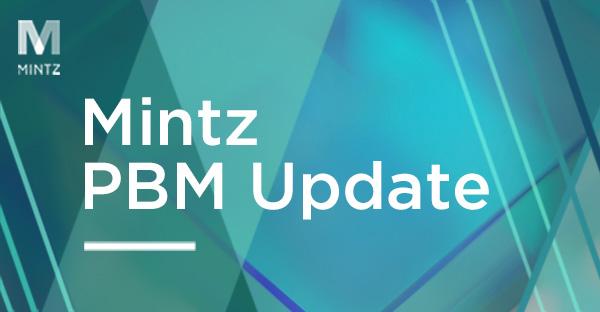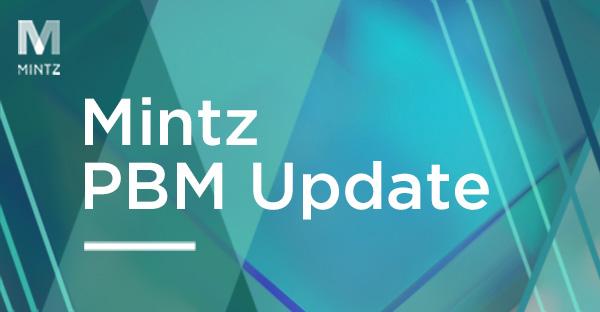
Sophia focuses her practice on advising health care organizations on a broad spectrum of regulatory and compliance matters. She represents traditional health care providers, pharmacy benefit managers (PBMs), health plans, rebate aggregators, management services organizations, and other for-profit and nonprofit health care clients. She regularly negotiates complex transaction terms, conducts due diligence, prepares corporate organizational and services related documents, and counsels PBMs and health plans on contracting and regulatory matters. Her practice also involves advising clients on value-based-care arrangements health care regulatory matters involving licensure and certification requirements.
Prior to joining Mintz, Sophia was an associate at a law firm that specialized in serving the health care sector, where she advised health care clients on a range of business, regulatory and transactional matters.
While earning her JD, Sophia served as a legal intern at a civil litigation firm in New York, the Office of the General Counsel at Memorial Sloan Kettering Cancer Center, and the New York Legal Assistance Group. In law school, she served as an executive editor for the Cardozo Journal of Equal Rights and Social Justice and volunteered with the school’s Mediation Clinic. She also received a Jacob Burns Medal - Faculty Award.
Sophia earned a Master of Public Administration with a specialization in Health Policy and Management. Before law school, she interned as a health insurance specialist with the Centers for Medicare and Medicaid Services and as a project associate for the New York City Health and Hospitals Corporation with the NYU Advanced Project in Healthcare Policy and Management.
viewpoints
PBM Policy and Legislative Update — Winter 2025
February 10, 2025 | Blog | By Theresa Carnegie, Tara E. Dwyer, Rachel A. Alexander, Lauren Moldawer, Bridgette Keller, Priyanka Amirneni, Madison Castle, David Gilboa, Xavier Hardy, Samantha Hawkins, Stephnie John, Alison H. Peters, Pamela Polevoy, Abdie Santiago, Hassan Shaikh, Sophia Temis
The PBM Policy and Legislative Update — Winter 2025 edition builds upon prior PBM Policy and Legislative Updates and summarizes activity from October through December (2024) that affects the PBM industry. It highlights (i) federal activities, (ii) state activities, and (iii) other noteworthy events and trends affecting the PBM industry.
PBM Policy and Legislative Update — Fall 2024
November 22, 2024 | Blog | By Rachel A. Alexander, Tara E. Dwyer, Theresa Carnegie, Bridgette Keller, Madison Castle, David Gilboa, Xavier Hardy, Samantha Hawkins, Stephnie John, Lauren Moldawer, Alison H. Peters, Abdie Santiago, Hassan Shaikh, Sophia Temis
Building upon prior issues and summarizing activity from July through September, the Fall 2024 PBM Update highlights federal legislative activity and oversight, state legislative activity and oversight, and other noteworthy events and trends affecting the PBM industry.
PBM Policy and Legislative Update — Summer 2024
July 31, 2024 | Blog | By Theresa Carnegie, Tara E. Dwyer, Rachel A. Alexander, Bridgette Keller, Madison Castle, David Gilboa, Xavier Hardy, Samantha Hawkins, Stephnie John, Pat Ouellette, Alison H. Peters, Abdie Santiago, Hassan Shaikh, Sophia Temis
House Committee Proposes to Extend Medicare Telehealth Flexibilities, Eyes PBM Reform to Offset Expenses
May 15, 2024 | Blog | By David Gilboa, Sophia Temis
On May 8, 2024, the U.S. House of Representatives Ways & Means Committee passed a bipartisan bill entitled the “Preserving Telehealth, Hospital and Ambulance Access Act” by a vote of 41-0, which will potentially have far-reaching consequences for Medicare beneficiaries, health care providers, and the telehealth and PBM industries.
PBM Policy and Legislative Update — Winter 2024
May 2, 2024 | Blog | By Theresa Carnegie, Tara E. Dwyer, Rachel A. Alexander, Bridgette Keller, Madison Castle, David Gilboa, Xavier Hardy, Abdie Santiago, Hassan Shaikh, Sophia Temis
Mintz is pleased to present its quarterly publication, PBM Policy and Legislative Update. This edition builds upon prior issues and summarizes activity from October through December 2023 that affects the PBM industry and will specifically highlight (i) federal legislative and enforcement updates, (ii) state legislative updates and litigation, (iii) other industry news, and (iv) Inflation Reduction Act (IRA) updates.
New York State Prepares to Regulate Hospital Cybersecurity Programs
November 28, 2023 | Blog | By Sophia Temis, Cody Keetch, Jean D. Mancheno
On November 13, 2023, Governor Kathy Hochul announced plans to regulate cybersecurity for New York general hospitals regulated under Article 28 of the Public Health Law. As proposed, the regulations will provide an additional level of security for hospitals, which have been increasingly targeted for cybersecurity scams and breaches. The proposed regulations would be additive to those requirements of the federal Health Insurance Portability and Accountability Act (HIPAA), which already includes a variety of requirements meant to safeguard Protected Health Information (PHI). Accompanying the proposed regulations, a $500 million dollar fund has been appropriated under Governor Hochul’s FY24 budget to assist hospitals in complying with the proposed cybersecurity regulations. The funds will be made available through a Health Care Technology Capital program, which will be established by the New York State Department of Health (DOH).
New York and Connecticut Increase Regulation Over Hospital and Health System Facility Fees
July 20, 2023 | Blog | By Jean D. Mancheno, Sophia Temis
Since the federal No Surprises Act took effect in January 2022, many pieces of legislation have been, and continue to be, geared toward promoting price transparency in health care. One such example is seen in the momentum of state legislative activity surrounding the billing of facility fees. These fees are typically charged to cover the overhead costs associated with the operation of a health care facility, such as payment of staff, maintenance of the facilities, and administrative costs. Patients, however, are often unaware that such costs will be factored into their medical bills. In response, New York and Connecticut, among other states, have recently enacted and expanded laws regulating facility fee billing.
Pharmacy Benefit Managers are on the Federal Government’s Radar: Senate, House, and Agency Proposals Seek to Increase PBM Oversight - Part 2
June 15, 2023 | Blog | By Bridgette Keller, Sophia Temis
Bipartisan legislative activity related to pharmacy benefit manager oversight is at an all-time high in both the House and Senate. As we noted last week, several bills that address PBM activities are moving through the Senate and House committees with what appear to be high approval rates. There has also been an uptick in general investigations into PBM business practices. This post, which is the second of a two-part series, highlights recent House and federal agency activity targeting the PBM industry.
Pharmacy Benefit Managers are on the Federal Government’s Radar: Senate, House, and Agency Proposals Seek to Increase PBM Oversight – Part 1
June 6, 2023 | Blog | By Bridgette Keller, Sophia Temis
In conjunction with the surge in state legislative efforts to regulate the pharmacy benefit manager (PBM) industry, Congress and federal agencies have ramped up PBM oversight efforts as part of the ongoing battle to lower prescription drug costs. Several bills that address PBM reporting requirements, including increased transparency as it relates to a PBM’s use of spread pricing and the retention of certain rebates and administrative fees, are moving through Senate and House committees. Further, last month the U.S. Department of Health and Human Services (HHS) Centers for Medicare & Medicaid Services (CMS) proposed a rule to increase transparency related to spread pricing in Medicaid-managed care contracts with PBMs, and recently, the Federal Trade Commission (FTC) expanded its ongoing investigation into PBM practices to include information requests from two group purchasing organizations.
This blog post highlights recent Senate activity as well as a proposed bipartisan Senate and House bill that would impact PBM activity in the Medicaid-managed care space. This blog post is the first in a series of two posts detailing recent federal activities aimed at increasing oversight of the PBM industry.
The End of the Federal COVID-19 Public Health Emergency is Near: What to Expect as HHS Transitions beyond the Emergency Phase
April 27, 2023 | Blog | By Jean D. Mancheno, Sophia Temis
With less than two weeks left until the end of the federal COVID-19 Public Health Emergency (PHE), which is set to expire on May 11, 2023, the Department of Health and Human Services (HHS) is preparing to transition certain COVID-19 flexibilities. On February 9, 2023, HHS released a COVID-19 PHE Transition Roadmap, which provides guidance on what to expect beyond the emergency phase of the COVID-19 pandemic. While many of the relaxed rules and regulations that helped facilitate an efficient and timely response during the PHE have been permanently signed into law, others, some of which are discussed below, will soon expire.
News & Press
The Best Lawyers in America 2025 Recognizes 184 Mintz Attorneys across 56 Practice Areas
August 15, 2024
187 Mintz attorneys have been recognized by Best Lawyers® in the 2025 edition of The Best Lawyers in America©. Notably, three Mintz attorneys received 2025 “Lawyer of the Year” awards, and 64 firm attorneys were included in the 2025 edition of Best Lawyers: Ones to Watch.
PBM Takeaways From Proposed Telehealth Flexibility Bill
June 18, 2024
Mintz is pleased to announce that 120 firm attorneys have been recognized as leaders by Best Lawyers® in the 2024 edition of The Best Lawyers in America©.
podcasts
Health Law Diagnosed – New Year's Gratitude
February 3, 2025 | Podcast | By Bridgette Keller, Alison H. Peters, Samantha Kingsbury, Theresa Carnegie, Joanne Hawana, Abdie Santiago, Stephnie John, Pamela Polevoy, Karen Lovitch, Jean D. Mancheno, Deborah Daccord, Rachel A. Alexander, Jane Haviland, David Gilboa, Kathryn Edgerton, Hassan Shaikh, Madison Castle, Laurence Freedman, Priyanka Amirneni, Samantha Hawkins, Tara E. Dwyer, Rachel Yount, Sophia Temis, Xavier Hardy
Host Of Counsel Bridgette Keller invites the Mintz Health Law team to reflect on what they’re grateful for as they prepare for the year ahead. Hear from a dynamic group of Members, Of Counsel, and Associates as they share their perspectives on what’s coming up over the horizon.
Health Law Diagnosed — Mintz Health Law Team: Reflecting on What We Are Grateful For
February 5, 2024 | Podcast | By Bridgette Keller
As the Mintz Health Law team welcomes the beginning of 2024, many of its members take a moment to reflect on the exciting growth of the Health Law Practice, opportunities to partner with clients on complex legal issues, and the celebration of numerous milestones.
Mintz Health Law: What We Are Grateful For
January 11, 2023 | Podcast | By Bridgette Keller
Bridgette Keller speaks with the Mintz Health Law team about what they are grateful for as they look back on a year of client service, mentorship, and working together as a team.
Publications
- Co-author, An Examination of State Trends in Facility Fee Legislation as New York’s Public Health Law § 2830 Takes Effect, New York State Bar Association’s Health Law Journal (September 2023)*
- Co-author: "HIPAA happenings: 2023 year in review." Compliance Today (March 2024)
*Reprinted with permission from the New York State Bar Association © 2023.
Read lessRecognition & Awards
Best Lawyers in America: Ones to Watch - Health Care Law (2024, 2025)






